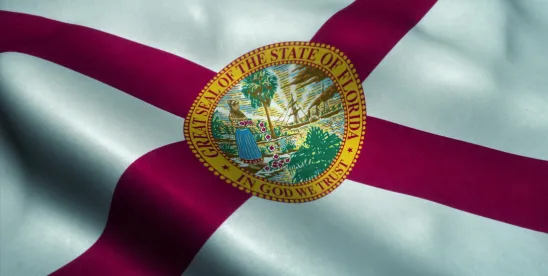In December 2022, the Florida Legislature held a special session to stabilize Florida’s struggling insurance market. The outcome was Senate Bill 2A, comprehensive legislation that, in part, repealed Florida’s long-standing one-way attorney fee provision in first-party property damage coverage disputes, which had provided policyholders the right to attorney fees if they secured any amount in a lawsuit against their insurers. The elimination of one-way attorney fee awards, and the return to the American rule that parties pay their own legal fees, significantly reduced frivolous suits and predatory litigation in the property insurance context, but also served to deter, and sometimes impede, non-frivolous suits by policyholders, because (i) policyholders were unable to pay attorney fees out-of-pocket, (ii) contingency-fee agreements left policyholders without enough money to complete repairs to property, and (iii) policyholders and attorneys were disincentivized from prosecuting small-value claims. The result was potential inequities in pursuing legitimate claims arising from property damage coverage disputes.
Florida now appears poised to realign the playing field through the enactment of Florida House Bill 1551 (HB 1551) and Florida Senate Bill 426 (SB 426), which were filed in February 2025.
HB 1551 mandates, through the creation of sections 627.4275 and 626.9375 of the Florida Statutes, that courts award attorney fees to prevailing parties in first-party insurance disputes against surplus lines and other property insurers; it provides that an insured is the “prevailing party” upon obtaining a judgment greater than the highest written, good faith settlement offer previously made by the insurer, and that an insurer is the “prevailing party” when the insured does not obtain a judgment greater than the highest written, good faith settlement offer previously made by the insurer. HB 1551 provides that an offer made by an insurer must be left open for at least five (5) business days to qualify as a “good faith” offer. The bill defines “judgment” to include any reasonable attorney fees, taxable costs, and prejudgment interest incurred by an insured when the highest written, good faith settlement offer previously tendered by an insurer was made. The definitions of “prevailing party,” as it relates to an insured, and “judgment” incorporated into HB 1551 generally mirror the definitions of those terms the Florida courts used to apply when interpreting the now-repealed one-way attorney fee statute.
Importantly, HB 1551 provides that Florida’s offer of judgment statute does not apply where prevailing party attorney fees are awardable. In practical terms, this will make the two-way, prevailing party attorney fee statutes (ss. 627.4275, 626.9375) the sole mechanism by which attorney fees may be awarded in first-party insurance coverage disputes (absent the award of attorney fees as a sanction under s. 57.105, F.S., or a controlling contract provision).
SB 426 is the companion to HB 1551. It requires courts to award reasonable attorney fees to prevailing parties in declaratory relief actions to determine insurance coverage after an insurer has “denied coverage or reserved its right to deny coverage in the future.” SB 426 specifies that awardable fees are “limited to those incurred in the claim for declaratory relief to determine coverage of insurance.”
Both HB 1551 and SB 426 specify that changes made by the bills will apply only to policies issued on or after their effective date(s) and may not be construed to impair or limit any right under an insurance policy or contract issued before the bills’ effective date(s).
These legislative proposals aim to promote fairness, reduce unnecessary lawsuits, and address the perspective that the previous 2022 reforms left consumers vulnerable to insurers. HB 1551 and SB 426 would establish a "loser pays" system, where the losing party is responsible for the prevailing party's attorney fees.
If the legislative proposals pass, courts will need to interpret the intent of the legislation to ensure its application promotes fairness in insurance disputes and establish clear guidelines for the determination of the “prevailing party” and the calculation of reasonable attorney fees.
On March 20, 2025, HB 1551 was heard by the Insurance & Banking Subcommittee of the House and received favorable reporting. SB 426 is currently awaiting action before the Senate Banking and Insurance Committee. Florida’s legal community anticipates their enactment in the coming months.
Some insurers have expressed strong concerns about the proposed legislation, fearing it may reverse recent reforms aimed at stabilizing Florida's insurance market. The 2022 legislation, which the new legislation seeks to amend, was credited with attracting new insurers to Florida and slowing premium increases. Opponents to the proposed new legislation argue that reinstating a "loser pays" system could lead to increased litigation and higher costs for insurers, again potentially destabilizing Florida’s property insurance market.
Overall, the proposed new legislation should incentivize insurers to expediently and fairly resolve insurance disputes, and incentivize insureds to accept fair settlement offers tendered by their insurers. The proposed new legislation will likely increase Florida’s first-party property damage coverage litigation. However, the volume of new lawsuits is not likely to approach the volume of suits seen prior to Florida’s 2022 repeal of one-way fee-shifting, and the proposed new legislation may result in an increase in insurance premiums.



 />i
/>i
